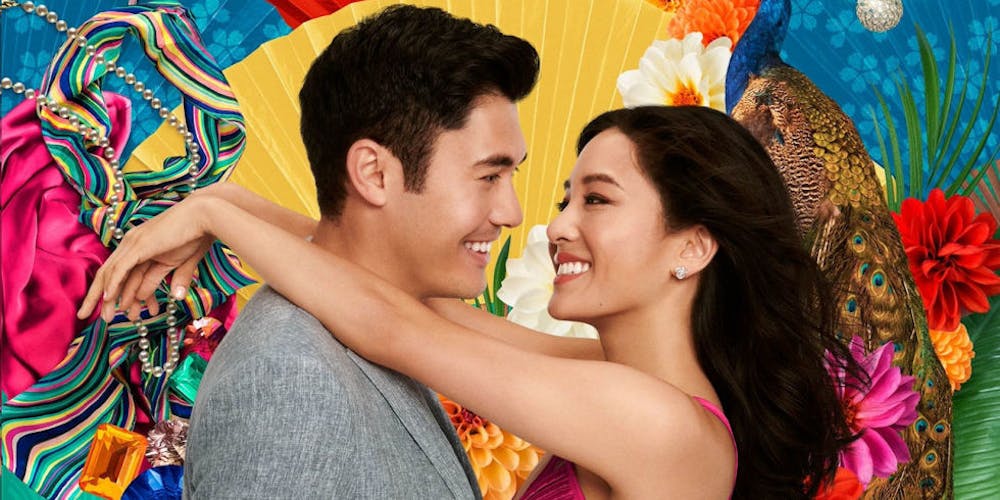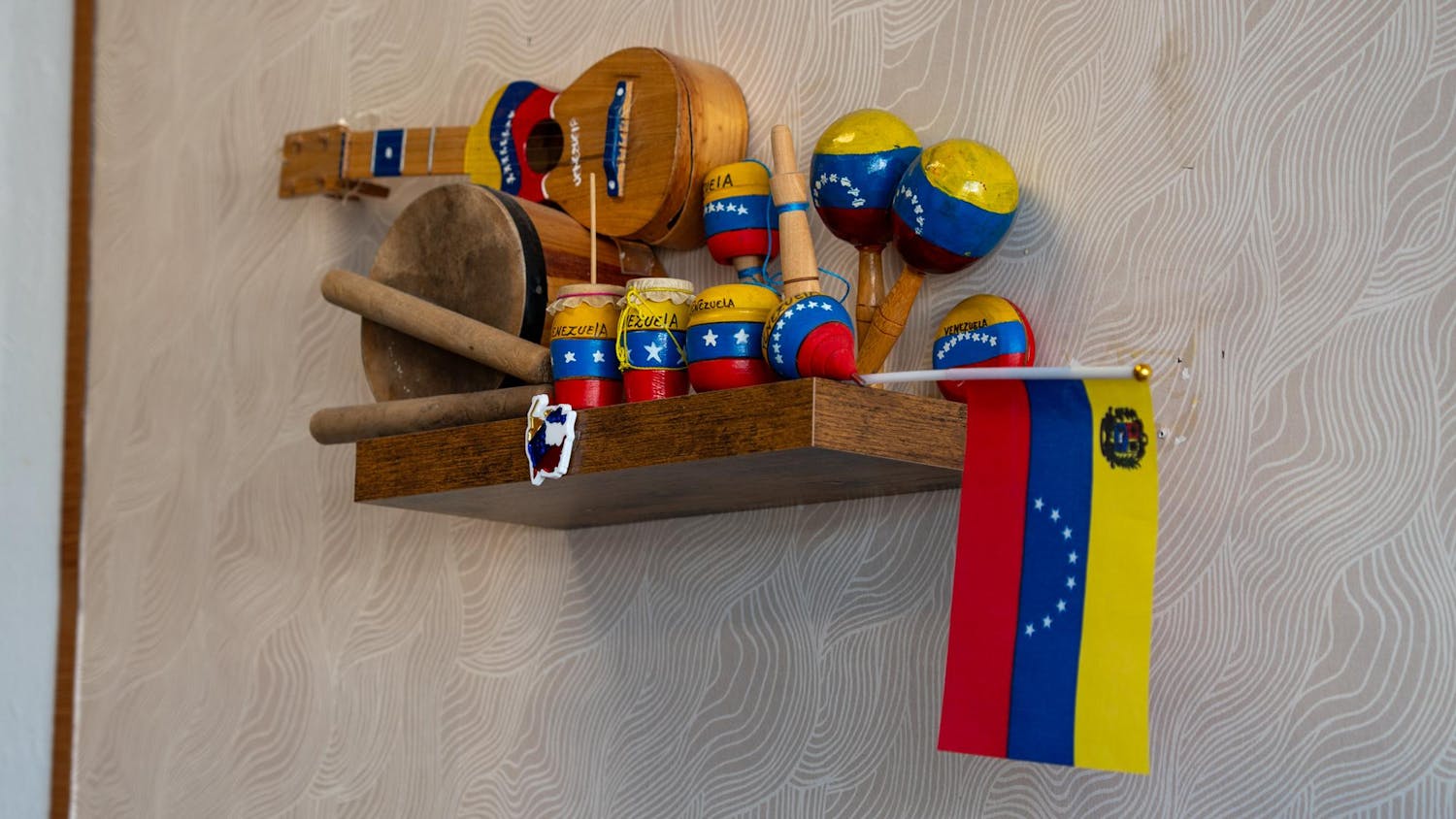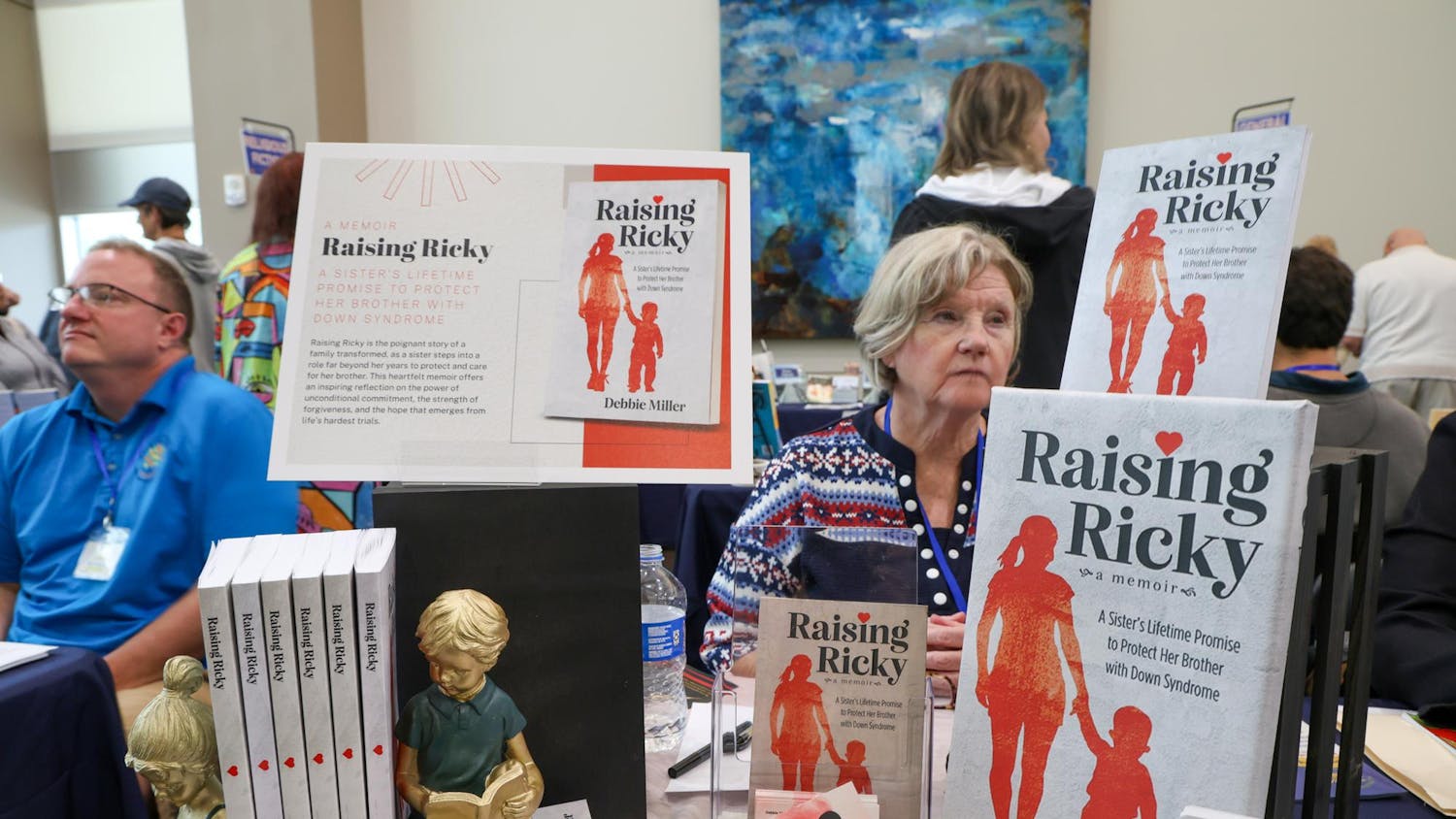The world is in dire need of more “Crazy Rich Asians.”
The importance of this film cannot be overstated. It does so much more than the main attraction: an all-Asian cast in a Hollywood non-period movie for the first time in 25 years. It also manages to present a romantic comedy full of strong women, as well as heartwarmingly beautiful relationships between complicated characters.
As the cherry on top, the cinematography is absolutely stunning.
Sara Han, a 21-year-old UF English and Asian-American studies senior, is a Chinese American student. She’s seen the movie three times already. She said she believes it is groundbreaking because it shows that Asian Americans are not monolithic and they can be relatable to non-Asian audiences.
If money talks, it’s currently telling Hollywood that Jon M. Chu created a masterpiece. In the three weeks since “Crazy Rich Asians” was released, it has grossed over $117 million domestically and $136.9 million worldwide, according to The Hollywood Reporter. This makes it the most profitable rom-com in almost a decade.
Despite the consistent barrage of white-washed movies, people of color actually attend the theater more often, according to the Motion Picture Association of America. Asian Americans attended theaters an average of 4.3 times in 2017, compared to white people who only went 3.2 times.
So, although a film telling an Asian American story while actually featuring actors of Asian descent was long overdue, at least the wait produced a treasure.
Quoc-Thong Pham, a Vietnamese American, is a 20-year-old UF theater junior who formerly served on the executive board of the Asian Student Union. He said seeing this film was a dream come true.
Representation matters. When we constantly consume stereotypes, it’s difficult not to internalize them.
It’s refreshing to see dynamic, intelligent female characters in any movie. However, for a race that has often been portrayed by Hollywood as meek and governable, it is particularly exhilarating to watch the women in Crazy Rich Asians.
“When I was growing up I would have loved to see someone as smart and inquisitive as Rachel Chu. I would have loved to see someone as fierce as Eleanor,” Han said. “Just because that would show I could be all those things and have all those personalities. Rather than people always just assuming that I’m quiet or submissive because I’m Asian.”
Pham said he never understood the docile stereotype of Asian women because the women in his life have always been strong-willed and vocal about their beliefs.
So when Astrid delivered “ I can’t make you what you’re not… a man” in a quiet tempered voice and walked away from her cheating husband, Pham thought it was the biggest mic drop he’d ever seen.
Han also said the diversity of Asian bodies was also a welcome surprise for her. Every actor absolutely owned it, too, which made them even more appealing.
The most comedic relief from the main characters is provided by Awkwafina, who portrayed Rachel Chu’s college roommate, Piek Lien, and Nico Santos, who portrayed the rainbow sheep of the family, an epithet his character, Oliver, coined for himself within his first few lines.
The amount of wealth in the film perturbed Han. When she first saw the trailer, she didn’t think she could possibly relate to the film. That completely changed when she saw it.
Crazy Rich Asians is seen through the eyes of a Chinese American girl, Rachel Chu, with an immigrant mother. It’s a perspective that’s essential to Han’s own identity. She said it is still problematic that the film does nothing to acknowledge the stark inequalities in Singapore and other Asian countries.
Han said seeing the relationship between Chu, played by Constance Wu, and her mother was like seeing herself and her mom onscreen. When the two are lying together on the bed talking in the film, Han looked over at her mom beside her and remembered the thousands of times they had done the same.
Eleanor Young, played by Michelle Yeoh, was perhaps the most complex and interesting character. It was apparent from the very first scene that she was a force to be reckoned with. It was also extremely apparent how much she truly loved her son and her family. But when she looked into Chu’s eyes and told her she would never be good enough for her son, it broke my heart. Pham said it spoke to an innate inadequacy born in the Asian American experience.
The tension at the intersection of Rachel Chu’s identity was one of the most important plot points. Both Han and Pham said it was too relatable.
“I think America has a very utilitarian mindset. You live your own life to the fullest and give back to the people close to you in the best way you know how to,” Pham said. “Whereas a lot of minority stories are stories of self-sacrifice. It’s almost like you’re caught in this sort of identity crisis when you’re trapped between those two worlds: You don’t want to let down your family but you also don’t want to let down yourself.”
Han said the first two times she saw the movie with her parents and went for the third time with her friends from the Asian American Student Association. She said seeing it with her friends was an incredibly different experience, because the tension at that intersection is something only people inside it can truly understand.
Pham also saw the movie with his friend from the AASA on opening weekend. He said there were so many moments throughout the film when they would look at one another, silently communicating their disbelief that their experiences were being portrayed so accurately on the big screen in front of them. During the food market scene, Pham saw some of his favorite dishes while his friend leaned over to him and whispered she missed her home country. He said it wasn’t just about the food, but the experience of sharing it with your loved ones.
The scene in which the family sits around making dumplings was surreal to see onscreen for both Pham and Han. Pham said he had learned to make dumplings from his mother, who learned from hers.
Han said her mother cannot cook to save her life, so she learned from her grandmother, like Nick Young, although she says her creations never come out nearly as perfecltly. She laughed as she admitted her grandmother sent her back to school with over 100 homemade dumplings, which are stored in her freezer.
Jon M. Chu decided not to cast the actors strictly to their actual ethnicities and nationalities. For example, Constance Wu is not actually Chinese but Taiwanese and Harry Golding, who plays Nick Young, is half Malaysian and half British. Asian actors playing different nationalities is particularly problematic because it contributes to the already fraught conception many Americans seem to have, which is that Asian cultures are interchangeable.
Not to mention, “Crazy Rich Asians” almost only shows East Asian folks, with the exception of the two Sikh guards with “knife guns.” The fact that they don’t say a single word and are the only non-East Asians is unfortunate.
Constance Wu posted on Facebook the day of the premiere to address this, saying “I know CRA won't represent every Asian American. So for those who don't feel seen, I hope there is a story you find soon that does represent you.”
Pham and Han both agreed that it is an issue. But, they hope that the success of “Crazy Rich Asians” leads to more opportunities for all minority groups being represented. Han said as long as Emma Stone isn’t present, its already a giant step forward.
So maybe you’ll never go to a giant Singapore mansion that made the elderly lady beside me gasp “Good Lord!” Maybe you’ve never had to worry about thinking you need eyelid tape before or being called a banana. And maybe, like me, you have no idea which languages are being spoken interspersed between English. There is still plenty that you can connect to in “Crazy Rich Asians.” If not, you may not be human.






